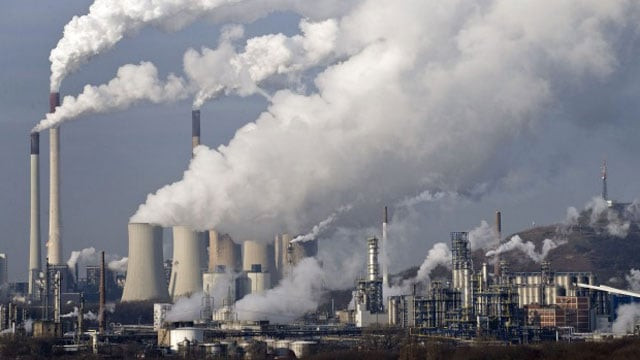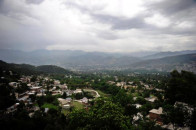Environmental Pollution: Lahore air quality readings spark dispute
While provincial govt dept alleges foreign figures to be entirely bogus, local experts find some truth in the data

In the last few weeks, global air quality markers for various cities including Karachi and Lahore, have been pointing towards alarming levels of environmental pollution in the Pakistani region.
The arguably increased pollution has been repeatedly cited to be a leading cause for the spike in skin, respiratory and related diseases being reported the Punjab province. Based on which, multiple international publications have listed the Mughal city, among one of the polluted places in the world. Amid growing concerns, experts have also cautioned motorcyclists to wear pollution masks and avoid travelling to severely polluted areas of the city during hazardous air quality levels.
Per local environmentalist Dawar Hameed Butt, a potential cause for Lahore’s spiraling air quality, is the continued usage of heavy-duty generators in various power plants, factories, mills and furnaces in the region. “It is further believed that the advent of winter, followed by burning of wood log, incineration of garbage and emissions from motor vehicles and furnaces have also led to increased toxin levels in the air.
Hot smoke entering the fog at night not only causes smog but also air pollution,” told Butt. Worst in the world? Yet however, where the Mughal city’s air quality has been subject to international criticism, the question remains whether it truly is one of the most polluted places in the world? Air Quality Index, an American institution monitoring environmental pollution, recently claimed Lahore to have a hazardous particulate matter (PM) rating of 423 at 2.5 metres.
Alleging fault in American measuring systems, the Punjab Environmental Protection Minister Bao Muhammad Rizwan claimed the figures to be a misleading and defamatory representation of a country endeavoring against climate change. Partly agreeing with the minister, environmental expert Dawar Hameed Butt said that where international figures are not entirely untrue, they are prone to certain exaggerations.
“Pollution levels in Lahore have clearly gone up, but it is still misleading to declare the entire city equally polluted based on data of a specific time and area,” said the environmentalist. “The US Consulate in Lahore has installed state-of-the-art pollution-testing devices, while the Department of Environmental Protection and some private educational and industrial institutions have also installed devices in various areas. Data on the US devices is updated every hour.
So instances when the pollution rate is high, media instead of averaging 24 hour readings, immediately starts sharing data that is inaccurate and not truly representative of the city’s air quality,” he added. Although Minister Bao Muhammad Rizwan has claimed that accurate representation of the country’s air quality index can be found on the official website of the environmental protection department, certain NGOs have contested the department’s readings for gross inaccuracies.
On the other hand, the department, in response, has alleged American air quality testing equipment to be incapable of differentiating between smog and pollution. Per Rizwan, their devices have been repaired and properly calibrated for securing regional data. While more than 30 devices have been procured recently at the cost of Rs25 to 30 million each.
“The project is now being completed with the help of World Bank, and new devices are to be installed in multiple cities in the next six months,” the minister told. Environmentalist Dawar Hameed Butt however, believes the department’s claims about American equipment to be a scapegoating attempt by the government in absence of actual solutions. “The government should instead focus on providing people access to affordable clean fuel, especially during winters to cut down log and coal burning. Similarly, LNG should be brought to Pakistan as soon as possible, solar energy should be promoted and above all, the sources of pollution should be duly monitored for a greener tomorrow,” he told The Express Tribune.



















COMMENTS
Comments are moderated and generally will be posted if they are on-topic and not abusive.
For more information, please see our Comments FAQ